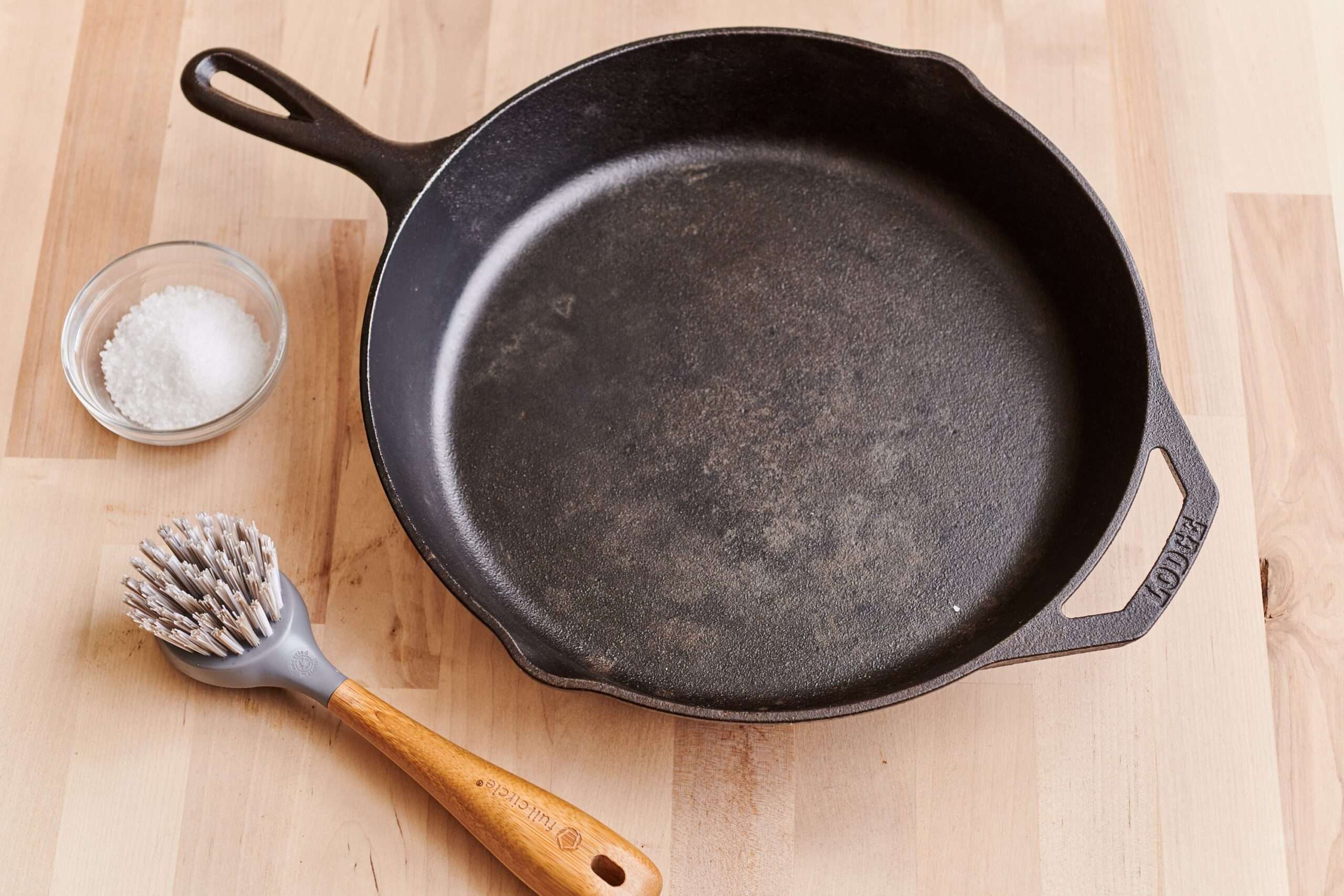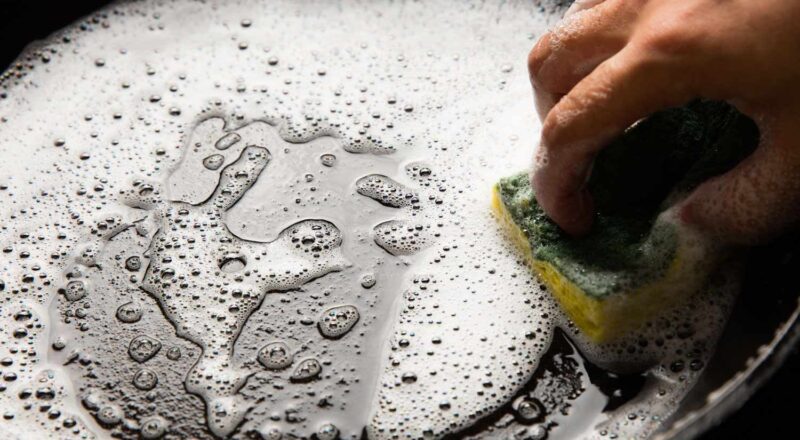For health-conscious individuals, understanding why cast iron rusts and how to prevent it is crucial. Cast iron skillets are a kitchen staple known for their durability and ability to enhance the flavor of food. However, rusting is a common issue that can compromise the quality of your cookware. In this comprehensive guide, we’ll delve deep into the reasons behind cast iron rusting and provide approved, terrific technology solutions to keep your cookware in top-notch condition.

What Causes Cast Iron To Rust?
The primary reason cast iron rusts is due to its iron content. When iron reacts with moisture and oxygen, it forms iron oxide, commonly known as rust. This process is accelerated in humid environments or when the cookware is not adequately dried after washing. Poor seasoning or damage to the seasoning layer also makes cast iron more susceptible to rust.
The Science Behind Rusting
At a molecular level, rusting is an electrochemical process. When iron in cast iron comes into contact with water, it reacts with oxygen to form hydrated iron(III) oxide. This reaction releases iron ions and hydroxide ions, resulting in rust. Understanding this process helps in devising effective strategies to prevent rusting.

Importance of Proper Seasoning
Seasoning involves coating the cast iron with a layer of oil and heating it to create a protective barrier. This barrier prevents moisture and air from reaching the iron, thereby preventing rust. Regularly seasoning your cast iron cookware is key to maintaining its longevity and preventing rust.
Proper seasoning involves using the right type of oil and ensuring even coating. For detailed steps on how to season your cast iron skillet, visit this recommended guide.

Best Practices for Preventing Rust
Cleaning Techniques
Proper cleaning is essential for preventing rust. Avoid using harsh soaps or abrasive scrubbers that can damage the seasoning layer. Instead, use warm water and a soft brush to clean your cookware.
Drying thoroughly is also crucial. After washing, place the cookware on a stove burner for a few minutes to ensure it is completely dry. This step is vital as any remaining moisture can lead to rust.
Storing Cast Iron
Incorrect storage can accelerate rust formation. Store your cast iron in a cool, dry place with good ventilation. Placing a paper towel or cloth between stacked cookware can help absorb any residual moisture and prevent scratching.

How to Remove Rust
If you find rust on your cast iron, don’t worry! It can be restored with some effort. Scrub the rusted area with a mixture of baking soda and water using a non-metallic scrubber. For more severe rust, you may need to use a vinegar soak to loosen the rust before scrubbing.
Once the rust is removed, re-season your cast iron immediately to restore its protective layer. For detailed instructions, explore this comprehensive guide.
Benefits of Using Cast Iron Cookware
Despite the potential for rust, the benefits of using cast iron outweigh the drawbacks. Cast iron cookware provides even heat distribution, can be used on various heat sources, and enhances the flavor of food. Additionally, it adds a small amount of iron to your diet, which can be beneficial for your health.
Cooking Versatility
Cast iron is incredibly versatile. It can go from the stovetop to the oven, making it ideal for dishes that require both searing and baking. Whether you’re making a pot roast or hash browns, cast iron cookware ensures even cooking and great results.
Longevity and Durability
With proper care, cast iron cookware can last for generations. It is incredibly durable and can withstand high temperatures, making it perfect for a variety of cooking techniques. Investing in quality cast iron cookware is a wise decision for any health-conscious individual.
Conclusion
Understanding why cast iron rusts and how to prevent it is essential for maintaining the quality of your cookware. By following the tips and techniques outlined in this article, you can ensure your cast iron remains in excellent condition, providing you with delicious, healthy meals for years to come. For more insights and recipes, visit this external resource.
FAQs
Can I use soap to clean cast iron?
Yes, but use mild soap sparingly. Avoid harsh detergents that can strip the seasoning layer.
How often should I season my cast iron cookware?
It’s best to season your cast iron every few months or as needed, depending on how frequently you use it.
Is rust harmful if ingested?
A small amount of rust is not harmful if ingested, but it’s best to remove rust from your cookware to ensure the best cooking experience.
As an Amazon Associate, I earn from qualifying purchases.

